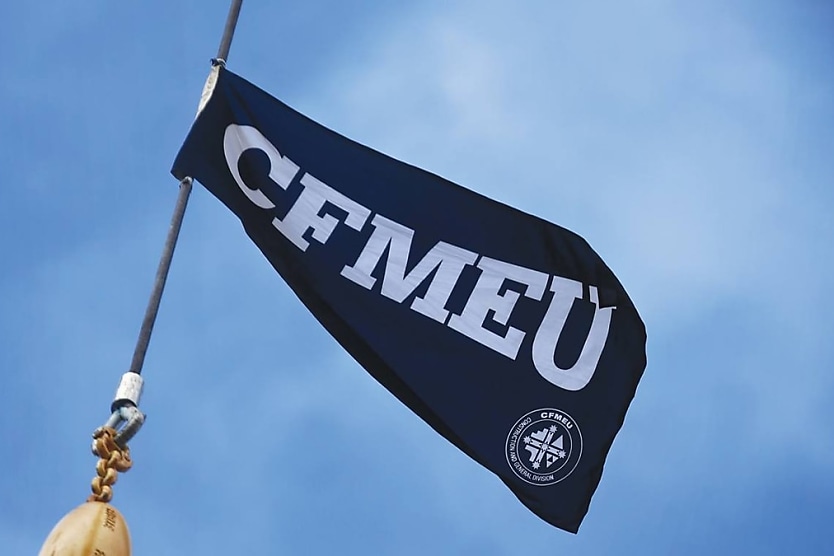
Is anti-union sentiment driving the appointment of an administrator for the CFMEU? And, if so, what are the likely outcomes for the labour movement Down Under?
In a statement issued last week (23 August), Attorney-General Mark Dreyfus announced that he had “decided it is in the public interest, having regard to the Parliament’s intention in enacting the Fair Work (Registered Organisations) Act 2009, to place the construction and general division of the Construction, Forestry and Maritime Employees Union and all of its branches – including the WA and ACT branches – into administration”.
“I have determined a written scheme of administration and the general manager of the Fair Work Commission has appointed Mr Mark Irving KC as the administrator and contacted Mr Irving to notify him of his appointment,” the A-G wrote.
“The scheme of administration of the construction and general division of the CFMEU takes effect immediately.”
The decision was made in accordance with s323B of the Fair Work (Registered Organisations) Act 2009 and was authorised by the Minister for Employment and Workplace Relations.
In response, Zach Smith, secretary of the CFMEU, said: “It is an indictment on the government and all sides of politics that they succumbed to anti-union rhetoric.”
Recently HR Leader explored – in a podcast episode produced in conjunction with global law firm Dentons – the allegations of corruption, bullying, and lawlessness at the CFMEU, the fallout from recent revelations, and what businesses can and must learn from such workplace relations matters.
The decision from the Albanese government has been widely publicised, leading to large protests by CFMEU supporters, which included the backing of other unions like the ETU (Electrical Trades Union) and MUA (Maritime Union of Australia), which fear this could set a dangerous precedent for unions going forward.
The Fair Work Ombudsman has condemned the actions of these CFMEU supporters who decided to protest, releasing a statement saying: “After national rallies today (27 August 2024), employers are encouraged to notify the Fair Work Ombudsman (FWO) of any potential unlawful industrial action at their workplace.”
“Where an employee has engaged in unprotected industrial action, an employer is required under the [Fair Work] Act to deduct a minimum of four hours wages from the employee, even if the industrial action was less than four hours.”
Despite the statement from the FWO, many have described these protests as the beginning of a “long war”, as the union’s supporters refuse to compromise on the government’s decision – one which has been labelled as a double standard.
According to The Age, the ETU’s Victorian branch claimed that royal commissions into other scandals in the past never resulted in such harsh consequences like what the CFMEU is going through based on “a handful of rumours and allegations”.
This sentiment was echoed by Greens MP Max Chandler-Mather, who alleged at one of the protests that the government is acting as “judge, jury and executioner”.
According to The Guardian, Chandler-Mather said: “Labor has used these untested allegations to attack an entire union. You will be dismissed as radicals … but it’s not radical to believe that a construction worker should be afforded a fair trial like a [chief executive], banker or a politician.”
“The real radicals are the Labor and Liberal politicians on untested allegations who are doing this as judge, jury and executioner.”
At the heart of the defence for the CFMEU is a pro-labour movement mindset, one that is shared by a number of Australians who understand the importance that unions hold in regard to giving workers a voice.
But does that mean that the actions of the government towards the CFMEU were driven by an anti-union ideology?
HR Leader posed this question to Anthony Forsyth, workplace law professor at RMIT University, who has been covering the CFMEU saga closely.
“I don’t agree that the federal government’s action to place the CFMEU into administration is motivated by anti-union objectives. The appointment of an administrator is necessary to get to the bottom of the serious allegations of criminal involvement and clean the union out from the inside,” said Forsyth.
“This worked in the case of the Health Services Union a decade ago. That was done through a court process, with the support of the ‘clean’ elements of the union. That option was not available here, as the CFMEU was going to oppose a court-appointed administrator, probably resulting in a months-long legal battle. The government’s legislation was, therefore, needed to make it happen quickly.”
“The negative stereotype of the aggressive union bloke was on full display. It’s obvious how off-putting that image would be for a young female hospitality worker or a migrant worker in the security industry, both already generally disinclined to join a union.”
“The last thing unions need is one of their own bringing the entire labour movement into disrepute and ‘trashing the union brand’.”
Until the CFMEU is rebuilt and the widely alleged toxicity is eroded, Australian unions, the labour movement, and pro-worker movements will be under the spotlight, with many in the public eye deeming such movements as guilty by association. The stain of the CFMEU’s alleged antics must be removed for unions to thrive.
“The allegations against the CFMEU do have the capacity to tarnish all union officials and members with negative associations in the eyes of the public. That’s why it’s so important that the ACTU and the federal government have acted decisively to confront these problems,” said Forsyth.
Kace O'Neill
Kace O'Neill is a Graduate Journalist for HR Leader. Kace studied Media Communications and Maori studies at the University of Otago, he has a passion for sports and storytelling.










